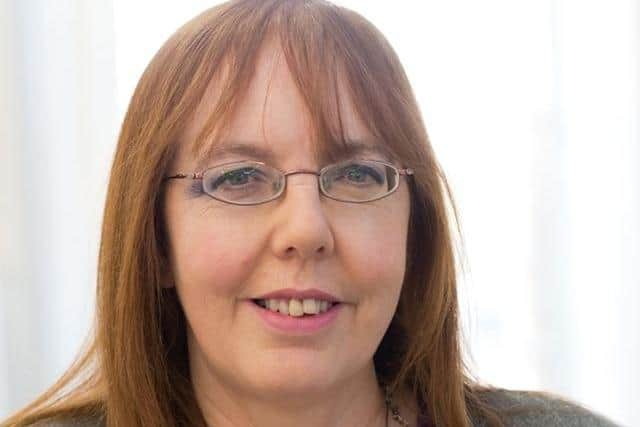Lancaster-led research results in launch of new, accessible courses for budding entrepreneurs
and live on Freeview channel 276
The first participants have now been welcomed onto the ‘Community Enterprise Coaching’ course at Lancaster and Morecambe College, a learning programme co-created by academics and entrepreneurs working on Elie 2.0, a Europe-wide research project to improve the chances of marginalised groups setting up their own businesses.
Led by experts from Lancaster University Management School, Elie 2.0 involves institutions from across the UK, Poland, Bulgaria and Greece in order to share knowledge, training materials and best practice across country borders.
Advertisement
Hide AdAdvertisement
Hide AdAfter hosting workshops across the continent and piloting materials and modules, the project’s first brand-new learning programme is now live, which has been validated to provide participants with a Level 3 accredited qualification in coaching and mentoring new entrepreneurs.


A second course has also been designed and tested amongst entrepreneurs across Europe, and promises to offer individuals who are vulnerable to social exclusion a comprehensive package of materials to develop the ‘hard’ skills required for setting up a business – such as book keeping, market research, pricing and marketing. It is currently going through a validation process, before being made available later this year.
Dr Carolyn Downs from Lancaster University Management School, who led the project, said: “Elie 2.0 builds on the work we carried out through Eliemental, which was really successful in helping the excluded, vulnerable and disadvantaged find employment, get into further training or set up their own enterprise.
“A person’s social status and culture can form barriers to setting up their own business, as many think entrepreneurship is simply something ‘other people’ pursue, rather than being for people ‘like them.’ Many lack confidence in their own skills and abilities, or are from deprived areas which holds them back from starting a business there.
Advertisement
Hide AdAdvertisement
Hide Ad“Eliemental really helped us to break down some of these barriers and give marginalised groups the support and training they needed to make those first steps.”
After receiving €404,000 in Erasmus+ funding to launch Elie 2.0, researchers have spent the last two years hosting a series of workshops with entrepreneurs across Europe, and used the learning to create a set of materials and resources to offer a full suite of training for budding business starters. These resources have now been translated and are open access on Moodle, available to all, free of charge, in participating countries.
“The idea is that entrepreneurs can now register with us to access our Moodle programme at no cost, which will walk them through different modules addressing each of the key skillsets,” Dr Downs said.
“Then, at the end of the course, they can be paired up with a qualified community-based enterprise coach, who will match the entrepreneurs with a local company and support them as they work on their first live project, to put learning into practice and solve real-life problems. Not only will this help to refine skills, boost confidence and build networks, it will also help to develop the local economy.”
The ‘Community Enterprise Coaching’ course, currently running at Lancaster and Morecambe College, will be taking on additional cohorts later this year and is available at no cost for anyone earning less than £18,000 per year.
To mark the end of Elie 2.0, a celebratory event was held in Morecambe at the end of June, where local businesses and entrepreneurs involved in the research met to share success stories and see the final learning materials. They also visited The Good Things studio in the Arndale Centre to see an exhibition by local artist Becca Snow, who was involved in Eliemental and has supported Elie 2.0 as a co-researcher, exploring how the learning materials could incorporate creative and interactive elements.
Partners involved in Elie 2.0 include the Creative Exchange in Morecambe, The University of Lodz and Inkubator in Poland, Znanie in Bulgaria, and Ergani and the South East Europe Research Centre – which is part of the University of York – in Greece.
Advertisement
Hide AdAdvertisement
Hide AdTo find out more, to register your interest in the Community Enterprise Coaching course at LMC, or to access the Moodle course, contact Sarah Thorn from Lancaster University at [email protected]